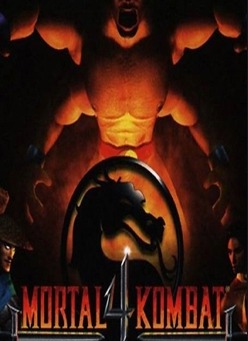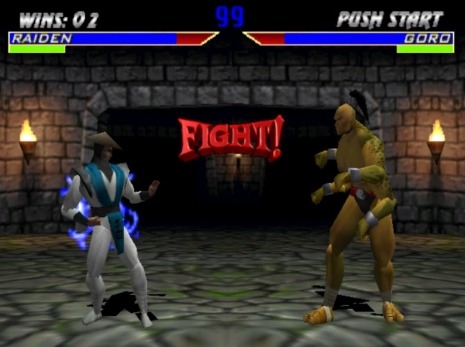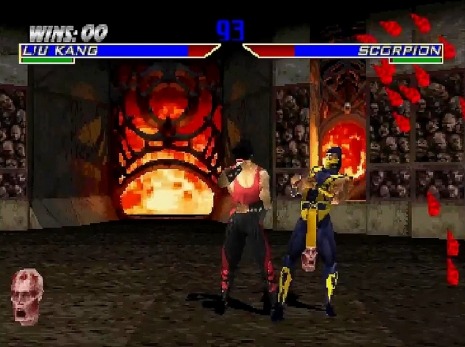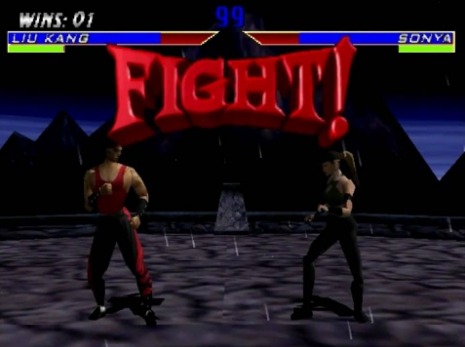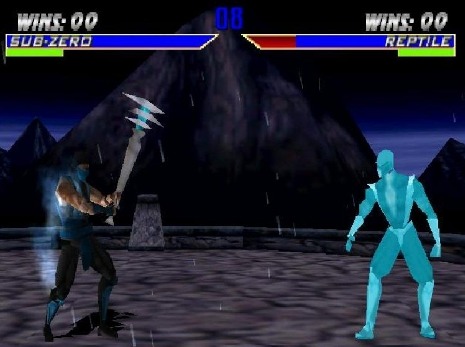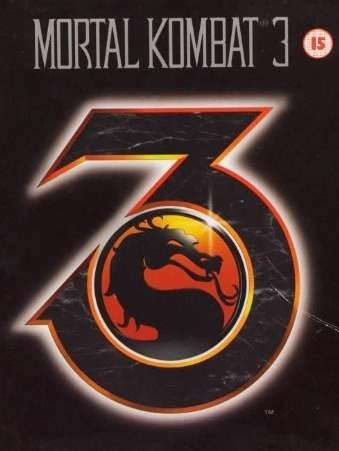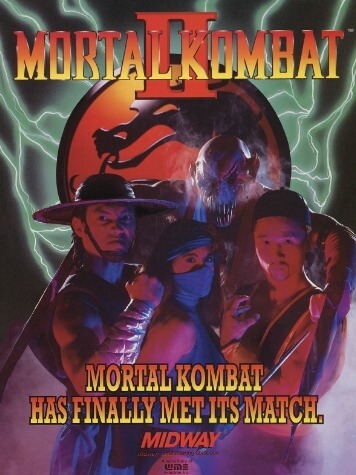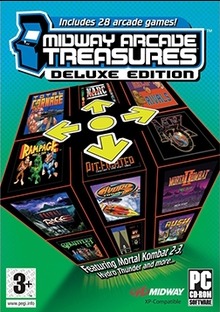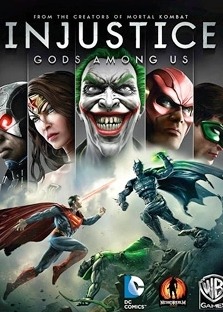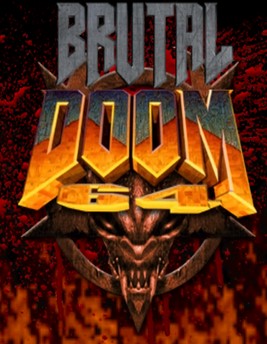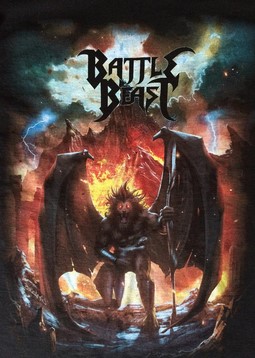MK4 added a "Maximum Damage" cap to the game's combo system, automatically breaking combos if they deal over a set amount of damage to a player and, thus, preventing infinite combos (although this cap can be removed with a code). Unlike Mortal Kombat Trilogy which contained multiple finishing moves of various kinds, Mortal Kombat 4 only has two Fatalities per character, and two Stage Fatalities that can only be done in certain arenas and involve the winning character throwing their opponent into part of the arena where they are killed. Unlike the first three games, this game does not include non-playable boss characters, except for Goro in the home versions.
Plot
Thousands of years before the setting of the first game, Shinnok, one of the Elder Gods who control the six realms in the Mortal Kombat universe, attempted to become the conqueror of them all. Thunder god Raiden fought and defeated Shinnok in a war that spanned hundreds of years, sending him to the Netherrealm, where he would be trapped forever. Now, Shinnok has managed to escape from the Netherrealm with help from the sorcerer Quan Chi, and seeks vengeance against the Elder Gods who banished him. In his plan, he first conquers the realm of Edenia, with the aid of a traitor, Tanya, while he prepares to attack the Elder Gods. In order to stop Shinnok's menace, Raiden requests help from the Earthrealm warriors who saved the realms from Emperor Shao Kahn in previous titles.
Characters
The game includes 15 playable characters, with 3 additional secret characters. The following is a list of the characters included in the Mortal Kombat 4 character selection roster.
MK4 introduces:
Fujin - Raiden's ally, the Wind God who first appeared in Mortal Kombat Mythologies: Sub-Zero.
Jarek - The last member of the Black Dragon after Kano's supposed death.
Kai - A Shaolin monk and friend of Liu Kang.
Meat (hidden character) - A bloody and fleshy skeleton.
Quan Chi - The mysterious evil sorcerer who aided Shinnok in his escape from the Netherrealm. A sub-boss in the arcade version of this game, Quan Chi had previously appeared in Mortal Kombat Mythologies: Sub-Zero and in the TV show Mortal Kombat: Defenders of the Realm, but this was his first appearance in a fighting game.
Reiko - Shinnok's general.
Shinnok - A fallen Elder God. Shinnok appears both as a playable character and the final boss of this game, after originally appearing in Mortal Kombat Mythologies: Sub-Zero, also as the final boss.
Tanya - A traitor to Edenia.
Returning characters include:
Goro - The Shokan who returns as a sub-boss in home versions, reenacting his original role in the first game.
Jax - A U.S. Special Forces officer who goes after Jarek when he finds out that he is still alive.
Johnny Cage - The Hollywood movie star seeking to produce his next movie.
Liu Kang - A Shaolin monk who seeks to defeat Shinnok.
Noob Saibot (hidden character) - The undead elder Sub-Zero and servant of Quan-Chi.
Raiden - The thunder god who again guides the mortals.
Reptile - A Zaterran warrior who seeks to serve Shinnok to save his realm.
Scorpion - An undead ninja who again seeks revenge on his nemeses Sub-Zero and Quan Chi.
Sonya Blade - A Special Forces lieutenant who seeks to arrest Jarek.
Sub-Zero - A former Lin Kuei member again stalked by Scorpion.
In addition, Mortal Kombat Gold features five additional characters and one more secret character.
Reception
In October 1998, Midway announced the home venues' revenues thanks to the release of various titles including Mortal Kombat 4. Upon the start of the arcade's road tour, news programs commented on the violence from the game and expressed concern on how it would affect the players' personalities; Ed Boon replied that there were already games more violent than Mortal Kombat 4, which was only the most popular of the violent games and therefore the most prominent.
Next Generation reviewed the arcade version of the game, rating it three stars out of five, and stated that "The game isn't a groundbreaker, but it plays roughly the same as previous entries, and at least the design is as solid as its polygons. It may not be what we'd hoped for, but it's much better than War Gods."
GameRankings had an average of 76.07% from 20 reviews for the Nintendo 64 version of the game. The PlayStation and PC ports received smaller averages with the PlayStation having 75.75% with 16 reviews, and the PC 72.14% with 14 reviews. Although various reviewers did not find it more entertaining than previous games, they still praised the gameplay. On the other hand, the gameplay was said to be very similar to the previous Mortal Kombat titles. The PlayStation and PC ports have been said to have improvements over the arcade game as having more responsive controls and the exclusive FMV scenes. However, IGN mentioned that playing the PC port would become "stale" unless the player "had an extra pad and a friend" and the Official UK PlayStation Magazine said that the game was "the same old stuff trotted out with a fresh coat of pixels. Tedious."
The Nintendo 64 port received positive response for being faithful to the arcade version, with GameSpot giving it a "Great" 8.9 and IGN a "Great" 8.8, though they noted that the graphics were not as good as those of the arcade. The game has received positive response due to the new 3D graphics, the improvement of combos, and how all the characters "are still as cheesy as ever" and because they still have their original movements with a few updates.
Next Generation reviewed the Nintendo 64 version of the game, rating it three stars out of five, and stated that "Mortal Kombat 4 is a guilty pleasure; although it's unoriginal, the game is fast and rewarding. MK4 is an excellent port and, though it's average in general, it is still one of the best fighters for the console."
Next Generation reviewed the PlayStation version of the game, rating it two stars out of five, and stated that "Overall, MK4 is by no means incompetent, and it's a fine port of the arcade game. Had it not been released on a system teeming with great fighting games, it might stand a chance, but on PlayStation, there's little to distinguish it."
